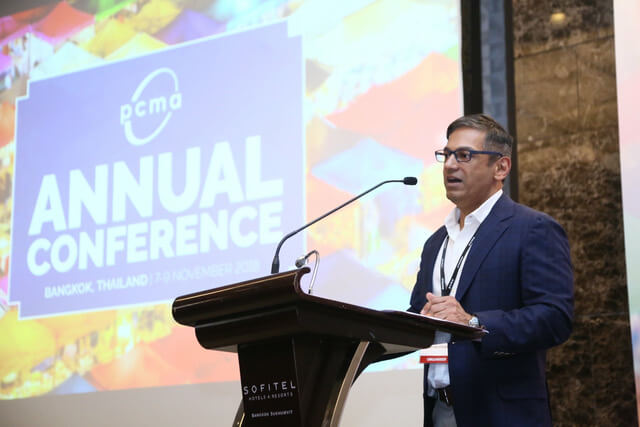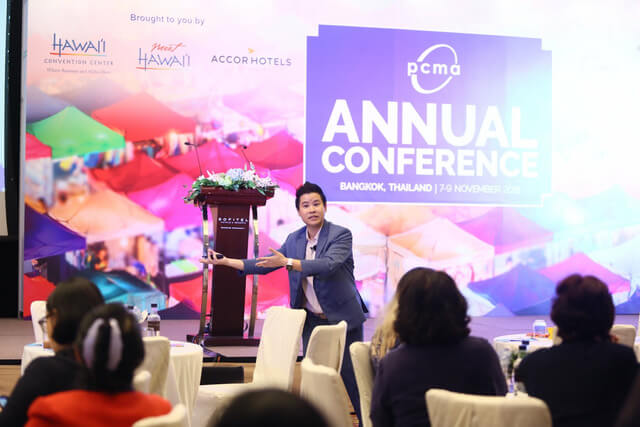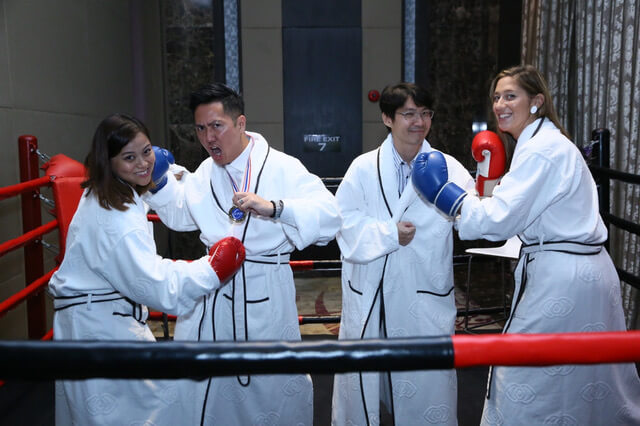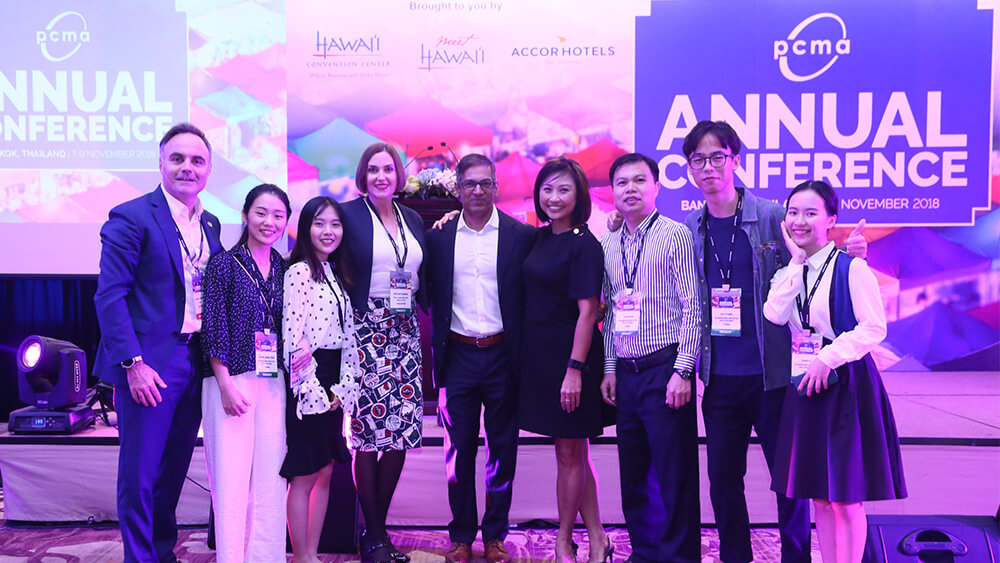From the rise of urbanisation to the need to embrace failure, key trends and skills for business event strategists took centre stage at event.
By Lauren Arena, Untangled
Harness the Power of Cities
In his opening address, PCMA President and CEO Sherrif Karamat, CAE, said the APAC region will drive the global economy in the future, and pointed to the potential of business events to advance social and economic change — particularly as cities across APAC continue to grow.
“By 2050, 80 percent of the world will be urbanised — but we’ll only be living in 600 cities,” he said. “Think of how powerful those cities will become. They will become more powerful than national governments.”
So, what does this means for the business events industry?

Sherrif Karamat
“When we bring business events to these communities they will drive economic prosperity, organisational success, and the social agenda. So if a national government is not interested in issues like climate change or gender equality, cities will bypass them,” Karamat said.
According to Karamat, events will play a critical role in connecting diverse communities. He urged industry stakeholders, like destination management companies, convention bureaus, venues, and hotels, to harness this opportunity.
“I want us to own our profession. I want us to take it back and understand that no one should make us feel marginalised about what we do. I believe that our industry is more important than the medical industry because unless we bring people together we cannot solve the ills of the world.”
Think Strategically
During an interactive session, Gee Snidvongs, corporate innovation specialist and founder and CEO of MindDoJo, schooled delegates on how to implement design thinking strategies. Armed with creative tools (Play-Doh and pipe cleaners) delegates were tasked with creating and pitching a new type of drinking glass.
After a number of “innovative” solutions were presented, including New Age coffee mugs and fancy cocktail glasses, Snidvongs highlighted a common error — not one delegate asked about the target audience. He then revealed that the audience for this particular activity was, in fact, children — rendering coffee mugs and cocktail glasses useless.

Gee Snidvongs presents his session on design thinking
The lesson: Design thinking is all about meeting the needs of your client or audience. The only way to achieve this is by asking questions. Snidvongs stressed that event planners must ask questions so they can address the primary and secondary needs of their audience and — most importantly — uncover their latent needs to achieve the crucial “wow” factor.
‘Ask the Right Questions’
Similarly, Juliano Lissoni, managing director of MCI Canada, highlighted the importance of asking questions when analysing data.
Thanks to an upsurge in the use of event apps, RFID devices, and online registration, business events generate incredible amounts of data — but once data is collected, what do you do with it?
“Data can help you solve problems and make better decisions,” Lissoni said. “But you need to ask the right questions.”
He said the success of data-driven businesses lies in the ability to identify insights — to measure, learn, innovate, and grow.
When planning for a major international congress, Lissoni stressed that “we need to learn from numbers. No more guess work.” He referenced the recent EULAR 2018 Congress, the largest medical congress in Europe, which attracted close to 15,000 rheumatology professionals for a four-day meeting in Amsterdam. At EULAR 2018, MCI used a combination of smart badges and live heat mapping to refine catering, alter room configurations, and adjust the temperature throughout the venue.
“When we measure data and understand what influences behaviour, we can then predict future behaviour with greater accuracy,” Lissoni said.
Refuse to Fear Failure
Failure. It’s an essential part of learning — both personal and professional, but it remains a taboo subject on the Asian business landscape. To highlight the importance of failure in the creative process, four brave event professionals shared their personal stories, battling for the coveted title of “greatest failure” on a stage designed to replicate a Thai boxing ring.

The F Stage
While tales included personal battles with depression, challenges involved in overcoming the global economic crisis in China, and one planner being admitted to hospital just days before to an event, the overarching lesson was not to “fail fast,” but to fail mindfully. When we fail with purpose, innovation happens.
The intimate session also underlined the importance of sharing in order to combat the rise in workplace stress across the APAC region.
Embrace Lifelong Learning
Event professionals shouldn’t be afraid of the rise of machines, says artificial intelligence (AI) specialist, Bernard Golstein, but neither should they remain complacent. Golstein, who is the founder and CEO of Singapore-based advisory firm sharperAI, helps organisations unlock the value of disruptive technologies like AI. With regards to the business events industry, he advised event planners to focus on “soft skills” like emotional intelligence and creativity.
“The events industry won’t collapse,” he said. “Human connection and emotional bonds will always be necessary, but you need to integrate the right technology to address logistical pain points.”
To remain relevant, however, Golstein said that event strategists must become “meta learners,” continually learning and acquiring new skills in order to keep up with news ways of working and the demands of the fourth industrial revolution.
“Be prepared to learn. Critical thinking is key,” he said.

